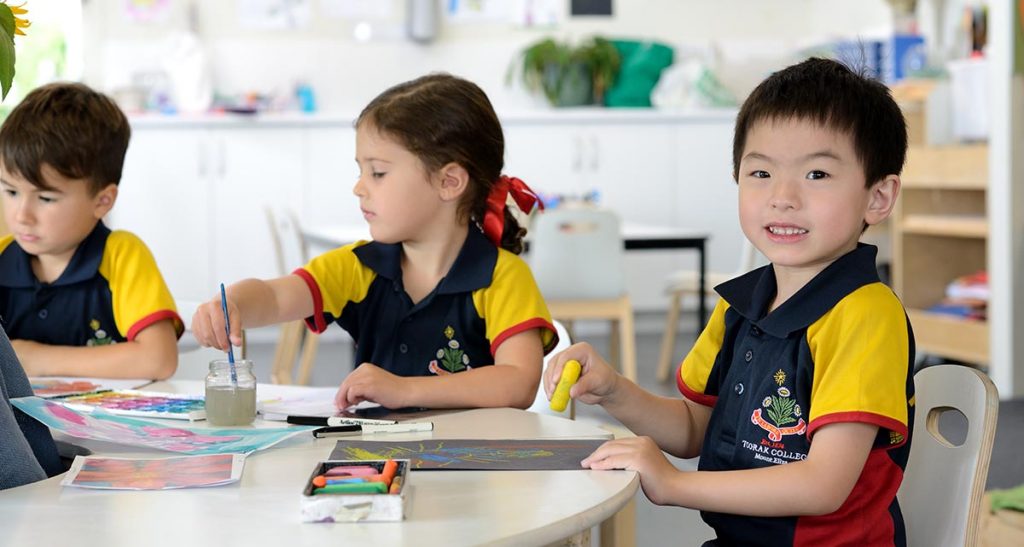By Melissa Schoorman
The first five years of a child’s life are pivotal, not only in the acquisition of language, gross motor, and other skills, but also in developing a sense of self, a connection to others, and an understanding of the world we live in. Research shows that up to 90 percent of the brain’s development has already taken place before a child begins primary school, and we know that the brain at this age is like a sponge; it soaks up information both consciously and subconsciously. The more knowledge and stimuli you can feed a child’s brain before they begin Prep, the more nourished it will be for years to come.
Early Learning programs assist in improving a child’s health and wellbeing, literacy and numeracy skills, the development of strong social interactions, and actively promoting a love for learning. It may be hard to envision when they are so young, but by investing in a robust Early Learning education, you are choosing a pathway and steering your child in the right direction for a bright educational future.
How can you ensure your child’s future is as bright as it can be?
It is never too early to begin learning
From the age of two, consider introducing your child to music lessons, dance lessons, sports lessons, or playgroup. At a playgroup session, children and their parents work together with other toddlers and adults. They are taught how to take turns, listen and respond, and respond to the emotions of others. These skills are introduced through intentional social interactions, sensory tasks, and skill development tasks. These can be sport-based – playing with soft balls to enhance their motor skills and coordination or performing arts-based – dancing to music, singing, and interacting with others. Your child’s interpersonal qualities will increase and be honed by exposure to other children.
Look for progress markers that inform how your child is developing
At the beginning of every child’s learning journey, they should feel excited to start a new chapter in their life. As a three-year-old, the objectives should focus on developing independence and resilience.
As a four-year-old, academics start to play a prominent role in their daily regime. Literacy and numeracy lay the foundations for their future learning, and they should be exposed to new experiences that enhance different parts of the brain. The brain controls our thoughts, memory and speech, movement of the arms and legs, and the function of many organs within our body. Robust Early Learning programs will incorporate a wide range of activities and lessons to ensure your child is being stimulated academically, mentally, emotionally, and socially. As they approach the transition to Prep, your child should be able to organise themselves, go to the bathroom alone, brush their teeth, arrange their lunch box, and recognise social and moral situations.
Keep the brain stimulated to enable child development, both academically and socially
Children in Early Learning will learn skills that they will need throughout their life. They learn how to play with others, begin to learn the art of compromise, develop empathy, gather.
Melissa Schoorman is the Head of Wardle House and Deputy Principal at Toorak College.


